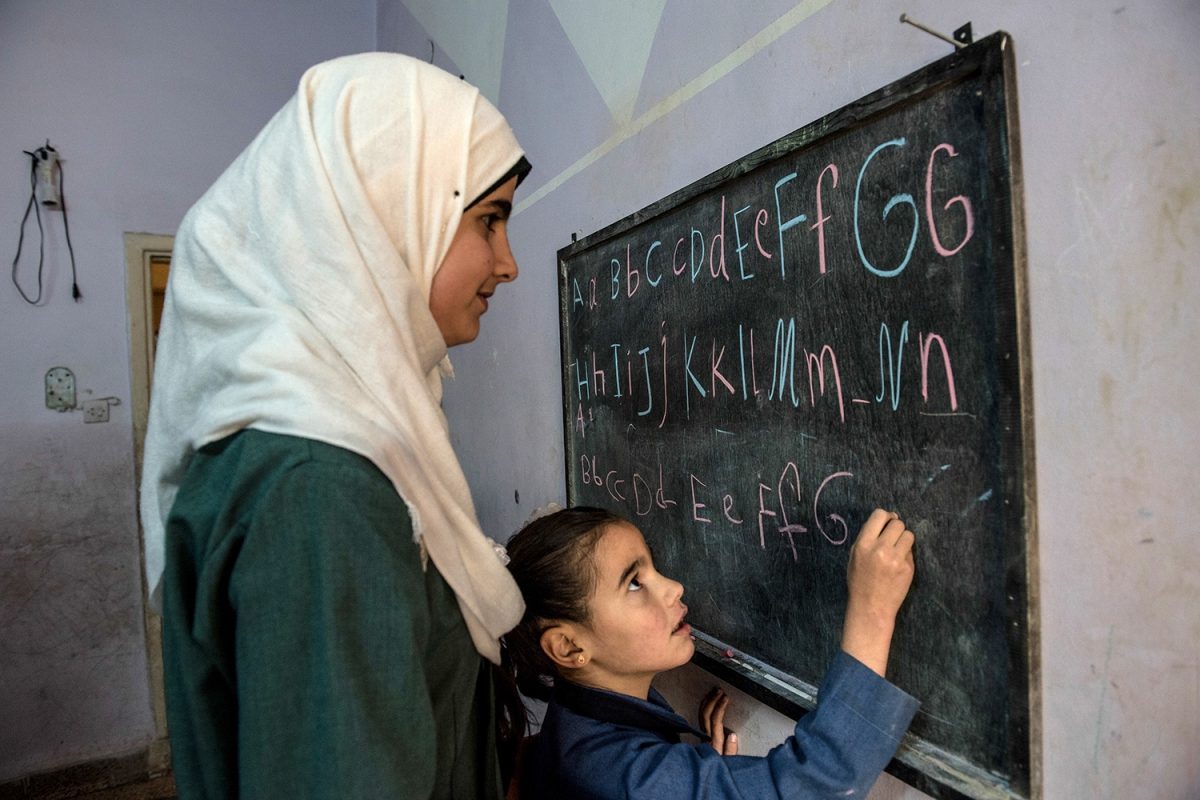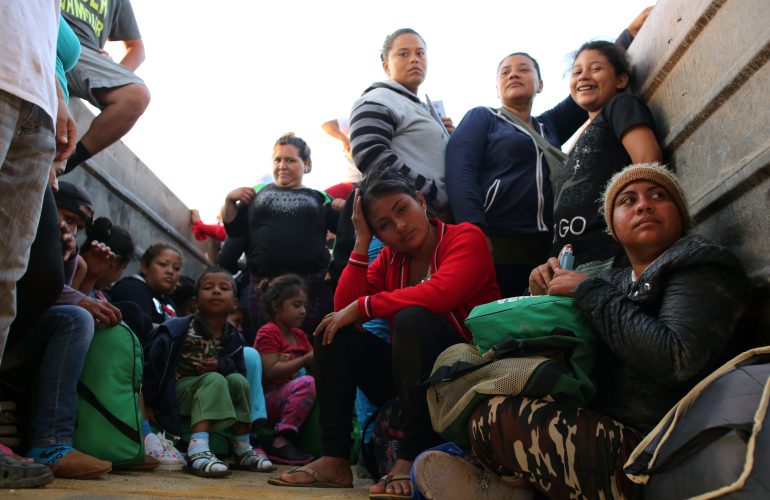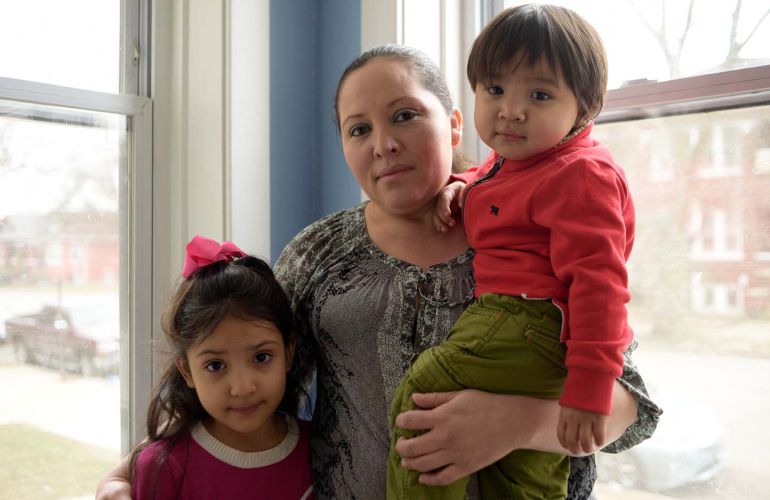A Bold Civil Society Vision for an International Agreement on Migration

A broad civil society coalition has put forward 10 priorities to help shape a key international agreement on migration that governments will negotiate in early 2018.
A clear civil society vision for the new international agreement on migration has been constructed in the document Now and How: Ten Acts for the Global Compact.
Placing a central emphasis on implementing rights and standards that already exist, the document urges states to come up with “a Global Compact on Migration worth agreeing to”.
According to the civil society vision, the new agreement should be complementary to the Sustainable Development Goals and directly benefit migrants, refugees and society while bringing them all together in discussions and solutions.
To achieve these goals, the “ten acts” that civil society organizations want to see incorporated in the Global Compact cover the following areas of migration policy:
- Drivers of human mobility: Act to end the drivers of forced displacement so that migration is by choice, not necessity, and facilitate migration by choice;
- Safe pathways for human mobility: Act to enhance safe, regular and affordable pathways and opportunities for human mobility that comply with human rights;
- Protection: Act to meet the needs and to respect, protect and fulfil the human rights of all migrants and refugees in distress in transit, at borders and at destination and to end detention;
- Decent work and labor rights: Act to promote safe and decent labor mobility, working conditions and labor rights for migrants and refugees;
- Decent living conditions and access to justice: Act to ensure safe and decent living conditions and access to social services and justice for all migrants and refugees;
- Education and skills: Act to provide quality education and developmental care for all children and to improve student mobility, learning opportunities and recognition of skills and qualifications;
- Inclusion and action against discrimination: Act to promote social cohesion and inclusion of migrants and refugees into society and combat all forms of xenophobia, racism and discrimination;
- Transnational and sustainable development: Act to foster transnational connections and the contributions of migrants, refugees and the diaspora to sustainable development and to reduce transaction costs for remittances and investments;
- Rights, return and reintegration: Act to develop global principles on the governance of return, reintegration and alternatives to return that guarantee the rights, safety and dignity of all migrants and refugees;
- Governance, implementation and monitoring: Act to create transparent, accountable and participatory mechanisms and means of implementation for rights-based governance of migration.
Two crosscutting emphases underlie the ten priorities: upholding the rights of children as well as implementing gender-responsive policies.
The Ten Acts document requests the development of a series of targets and actions that are ambitious but achievable on a graduated timeline from 2018 until 2030.
Beginning in 2020, the United Nations should designate an International Decade for Human Mobility, Development and Human Rights to help support the implementation of these targets.
“The development of a Global Compact on Migration is a once-in-a-generation opportunity to address some of the challenges of human mobility today,” says John K. Bingham, Head of Policy at the International Catholic Migration Commission (ICMC). “It’s time to move from general, beautifully worded commitments to migrants’ rights to the implementation of concrete mechanisms that make good on those rights. That’s the purpose of these Ten Acts.”
Next steps
The Ten Acts document is currently open for signing-on by civil society organizations working on migration issues. It is expected that some 200 NGOs will have subscribed to it by the end of November and that many more will use it in their advocacy work up until the next UN General Assembly and beyond.
A webinar open to all civil society organizations took place on 8 November at 4:00-5:30 p.m. CET. During the webinar, the Ten Acts, other civil society advocacy and the upcoming evaluation and negotiation phases of the Global Compact were discussed. Listen to the recording of the civil society webinar.
The organizations and networks that have led the major civil society processes focused on the Global Compact on Migration over the past year will convene a two-day evaluation meeting in Puerto Vallarta, Mexico, on 2-3 December.
There, civil society representatives will present the Ten Acts to government officials ahead of an intergovernmental meeting scheduled for 4-6 December, which will bring the process forward towards next year’s intergovernmental negotiations.
About the Global Compact on Migration
At the UN General Assembly in September 2016, 193 member states unanimously committed to developing and adopting two “Global Compacts” in 2018. These intergovernmental agreements will respectively address safe, orderly and regular migration as well as responsibility-sharing in hosting refugees.
The Ten Acts document was drafted by an ICMC-led core group of the civil society Action Committee (established in 2016 for the UN Summit for Refugees and Migrants) and the International Steering Committee of civil society for the Global Forum on Migration and Development.
The document follows the unified approach taken by civil society in previous UN processes like the 2013 High-level Dialogue on International Migration and Development (HLD), the 2015 Sustainable Development Goals and the New Deal and Act Now! advocacy documents around which many civil society organizations converged in the process leading to the adoption of the New York Declaration at the Summit on Refugees and Migrants in 2016.
- Download the document Now and How: Ten Acts for the Global Compact in English;
- Download the document Ahora y Así: Diez Pasos para el Pacto Mundial in Spanish;
- Download the document Maintenant et Comment: Dix Actes pour le Pacte Mondial in French;
- Sign on on the Ten Acts;
- Listen to the recording of the civil society webinar.


